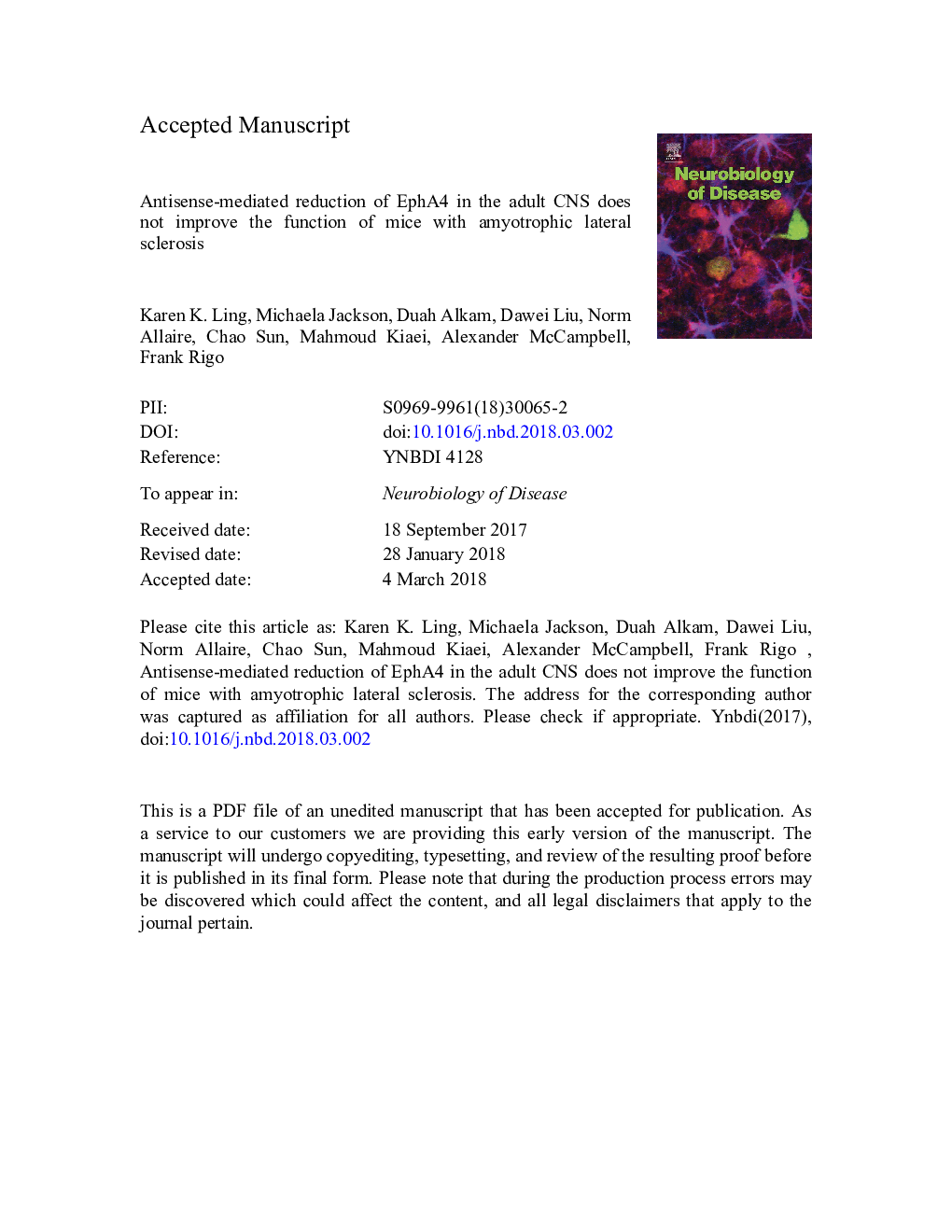| کد مقاله | کد نشریه | سال انتشار | مقاله انگلیسی | نسخه تمام متن |
|---|---|---|---|---|
| 8686395 | 1580606 | 2018 | 33 صفحه PDF | دانلود رایگان |
عنوان انگلیسی مقاله ISI
Antisense-mediated reduction of EphA4 in the adult CNS does not improve the function of mice with amyotrophic lateral sclerosis
دانلود مقاله + سفارش ترجمه
دانلود مقاله ISI انگلیسی
رایگان برای ایرانیان
کلمات کلیدی
موضوعات مرتبط
علوم زیستی و بیوفناوری
علم عصب شناسی
عصب شناسی
پیش نمایش صفحه اول مقاله

چکیده انگلیسی
Amyotrophic lateral sclerosis (ALS) is a fatal adult onset motor neuron disease characterized by progressive denervation and subsequent motor impairment. EphA4, a negative regulator of axonal growth, was recently identified as a genetic modifier in fish and rodent models of ALS. To evaluate the therapeutic potential of EphA4 for ALS, we examined the effect of CNS-directed EphA4 reduction in preclinical mouse models of ALS, and assessed if the levels of EPHA4 mRNA in blood correlate with disease onset and progression in human ALS patients. We developed antisense oligonucleotides (ASOs) to specifically reduce the expression of EphA4 in the central nervous system (CNS) of adult mice. Intracerebroventricular administration of an Epha4-ASO in wild-type mice inhibited Epha4 mRNA and protein in the brain and spinal cord, and promoted re-innervation and functional recovery after sciatic nerve crush. In contrast, lowering of EphA4 in the CNS of two mouse models of ALS (SOD1G93A and PFN1G118V) did not improve their motor function or survival. Furthermore, the level of EPHA4 mRNA in human blood correlated weakly with age of disease onset, and it was not a significant predictor of disease progression as measured by ALS Functional Rating Scores (ALSFRS). Our data demonstrates that lowering EphA4 in the adult CNS may not be a stand-alone viable strategy for treating ALS.
ناشر
Database: Elsevier - ScienceDirect (ساینس دایرکت)
Journal: Neurobiology of Disease - Volume 114, June 2018, Pages 174-183
Journal: Neurobiology of Disease - Volume 114, June 2018, Pages 174-183
نویسندگان
Karen K. Ling, Michaela Jackson, Duah Alkam, Dawei Liu, Norm Allaire, Chao Sun, Mahmoud Kiaei, Alexander McCampbell, Frank Rigo,